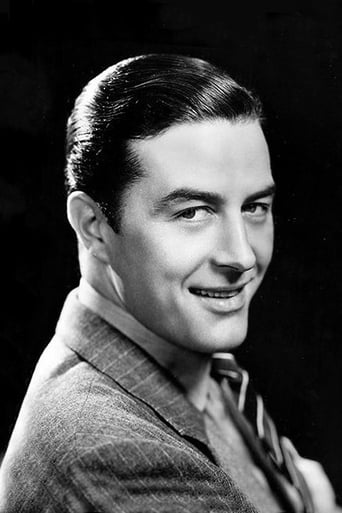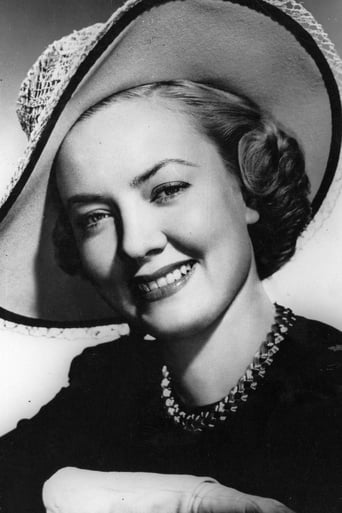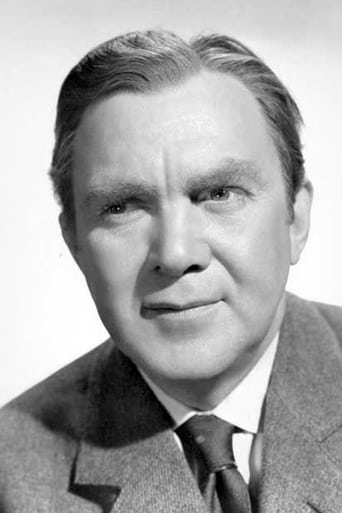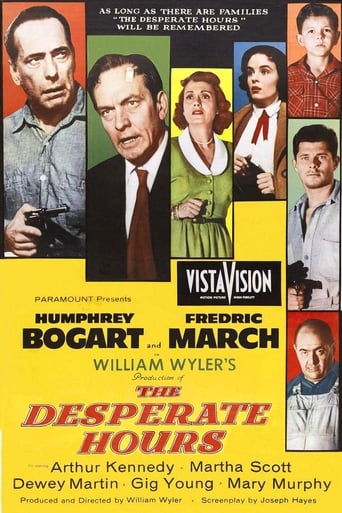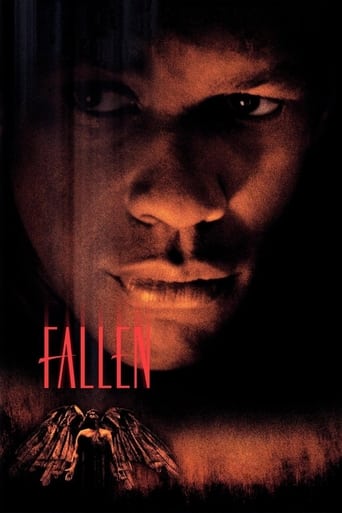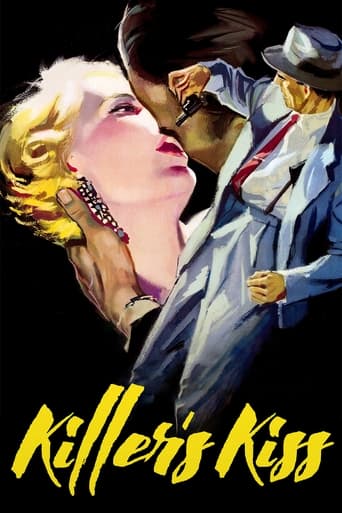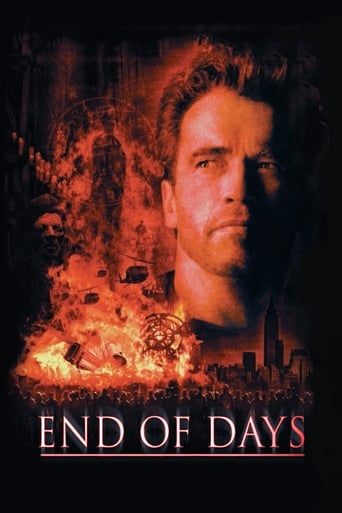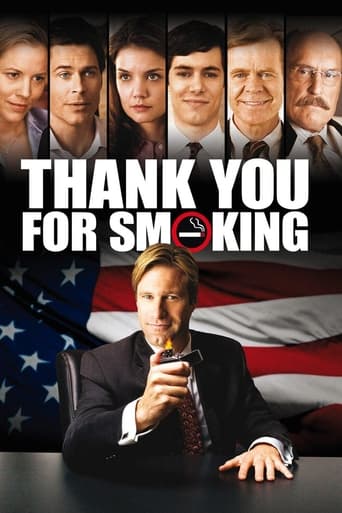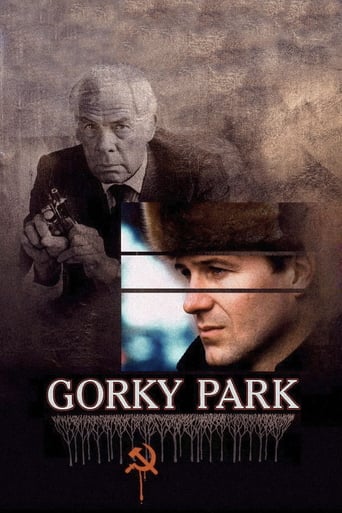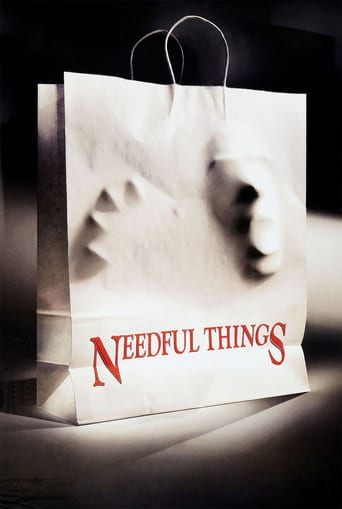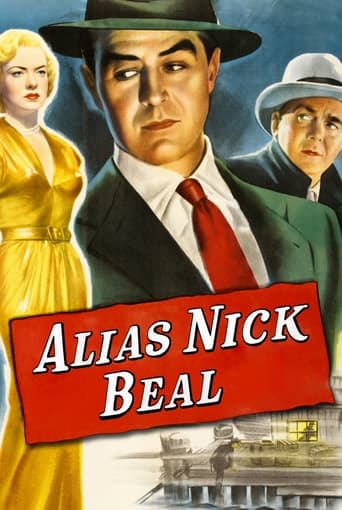
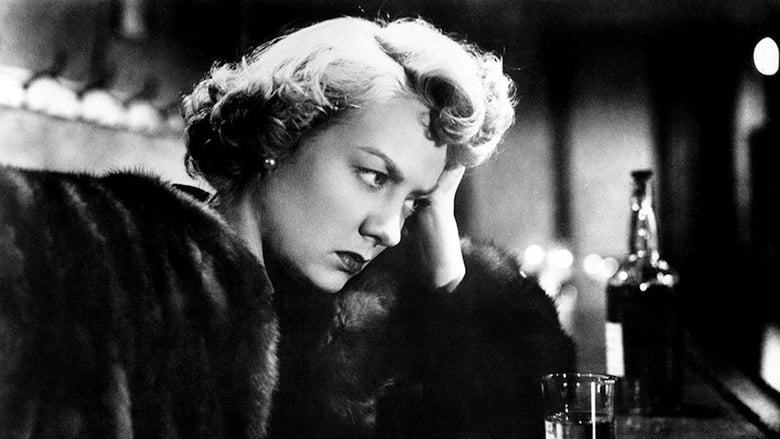
Alias Nick Beal (1949)
After straight-arrow district attorney Joseph Foster says in frustration that he would sell his soul to bring down a local mob boss, a smooth-talking stranger named Nick Beal shows up with enough evidence to seal a conviction. When that success leads Foster to run for governor, Beal's unearthly hold on him turns the previously honest man corrupt, much to the displeasure of his wife and his steadfast minister.
Watch Trailer
Cast


Similar titles
Reviews
I love this movie so much
So much average
At first rather annoying in its heavy emphasis on reenactments, this movie ultimately proves fascinating, simply because the complicated, highly dramatic tale it tells still almost defies belief.
The film's masterful storytelling did its job. The message was clear. No need to overdo.
Thomas Mitchell (Foster) wants to run for Governor and rid the town of corruption, but corrupt Fred Clark (Faulkner) stands in his way. Enter Ray Milland (Nick Beal). Milland can offer Mitchell what he needs to take power.Tony Blair's PR spin-doctor Alastair Campbell is obviously the inspiration for this film. Milland plays the role of domineering adviser to Thomas Mitchell, and Milland gets his way. The cast are all good in this film, with fallen girl Audrey Totter (Donna) getting a special mention – she is funny, intuitive and tragic all at the same time. I thought the film was a bit talky at the beginning but it does seem necessary in order to set the scene. And there certainly is an air of mystery when Milland appears. There are various good scenes, my favourite being when Totter ends up speaking the dialogue that she has just rehearsed with Milland. At first she dismisses Milland for talking nonsense, but there comes a moment when she is with Mitchell and she realizes what is happening. Some of the rehearsed dialogue did not make sense to her when first repeated. But it all fits now. It's well acted and directed and it's the most memorably chilling moment for me. Good direction, effective camera shots and a good music score round out the other film highlights.So, if you fancy running for any kind of position of power in the political arena, just remember to carry a bible with you ..or there may be trouble.
Unlike a lot of commentators on this site, I found "Alias Nick Beale" to be kind of slow and uninvolving, but that probably just my prejudice against film noir revealing itself. I liked Ray Milland just fine in his role, but the guy who played the "Faust" character dull and uninteresting - probably not the actor's fault, since the character he plays is a self-important blowhard who is willing to take shortcuts to get important reforms done.However, I did like the way the screenplay made things "complicated" for the "hero" as he dealt with more and more unexpected consequences of his initial compromise, and unlike some here, I liked the lead actress' performance as the Jezebel with a heart of gold.There's some heavy-handed and not very convincing sermonizing by a minister that's supposed to serve as the moral center of the film, and I have to say that if that's what we've got for inspiration against the wiles of St. Nick, we're in trouble.Still, I have to give the film credit for some interesting ideas and some good one-liners by "Beale", and a resolution that leaves the hero with something like a 2nd chance.
This great supernatural noir hybrid deserves to be far better known and released on DVD (Wake up, Paramount!). Shadowy fixer Nick Beal (Ray Milland) is more than he appears to be (Check out his name for starters). When decent D.A. and seemingly "incorruptible enemy of the legions of evil" Joseph Foster (Thomas Mitchell) claims he'd sell his soul to put away an influential racketeer, saturnine Nick Beal gets on his case and subsequently smooths the way to a successful prosecution and, possibly, a path to the governor's office. But what does it profit a man if he gains the world but loses his soul? This modern dress morality play gives us an answer as well as proving to be a gripping tale of character and drama. Smoothly directed by John Farrow - whose previous film was also a noir with supernatural overtones, NIGHT HAS A THOUSAND EYES (DVD release too please, 20th Century Fox), and who had directed Milland in the earlier more plot-oriented noir THE BIG CLOCK - and atmospherically filmed by Lionel Lindon (who later shot THE MANCHURIAN CANDIDATE), this is a gripping and unusual noir. Bolstering this offbeat generic tale are a clutch of great performances, particularly those of the saturnine Milland, tormented Thomas Mitchell and a touching Audrey Totter as the fallen angel waterfront lush enlisted by Beal to carry out the fleshier requirements of his plot. Given the era it was made, the Devil may not ultimately have all the best tunes here (which wasn't quite the case with Al Pacino's older Nick in the not altogether dissimilar THE DEVIL'S ADVOCATE) but this is still an unusual and tangy take on personal, spiritual and political corruption that is highly recommended and deserves to be more widely seen. As I said, DVD release please, Paramount!
Ray Milland managed to do something that few critics were ever willing to admire him for. He was a good looking man of Welsh (not English) ancestry, who could play members of the English upper class. But he was always willing to stretch a bit more than other similar actors. For one thing, he could play villains. Even in his early career he was frequently cast as a weakling or a gigolo (as in "We're Not Dressing"). He was willing to experiment with comic roles as well as straight drama. The result was that from 1942 to 1951 or so Milland was a Hollywood star. He played the leads in films as various as "Reap the Wild Wind", "The Major and the Minor", "The Ministry of Fear", "The Big Clock", "The Lost Weekend", "Golden Earings", and "Alias Nick Beal". While some of his films were comedies (such as "The Major and the Minor" and "Skylark") quite a number were dramas or even melodramas. And some of his characters skirt the edge of acceptable behavior. He is a man who has just been released for committing a mercy killing of his wife in "The Ministry of Fear". Although he is basically innocent, he is a flirtatious type in "The Big Clock". Even in Wilder's "The Major and The Minor" there is a moment when Milland, smiling at the thought of what a real "knockout" "Sue-sue Applegate" (actually grown-up Ginger Rogers) is, suddenly gets a really pained look in his face - he does not like that he's thinking lascivious thoughts about a child.His deserved "Oscar" for "The Lost Weekend" is another example of this dark side - he is supposed to be a writer, but he is a poseur with a serious drinking problem. In fact, he contemplates suicide at the conclusion of the film, only to be stopped by Jane Wyman.In "Alias Nick Beal" he played his most sinister part (except possibly Tony Wendice in "Dial "M" For Murder"). Here he played Satan, and he is in total control of the game throughout of the movie - the game being politics and power over people. On one level, if one forgets the supernatural elements, "Alias Nick Beal" is as good an abject lesson in the back room deals of American politics as the comedies "The Senator Was Indiscreet" or Preston Sturges' "The Great McGinty". Only here, with violent death thrown in, the seediness of it all becomes more apparent. Possibly the best moment is when the honest, and mostly honorable, Thomas Mitchell is forced to shake hands with Fred Clark, the most notorious political boss in the state. On the other level is the serious attempt to keep some religious allegory in, with people like George Macready (here in a rare good guy part) noting that Beal resembles an ancient picture of the Devil, and that "Los islas de las almas perditas" where Beal comes from means, "The Island of Lost Souls". Religion does play a crucial role in the film, including it's completion.Leslie Halliwell made the observation that after this film none of the stars ever did as well again. This is not true. Milland did play the evil Tony Wendice, and Macready went on to the mad French general in "Paths of Glory". But more important, Milland kept showing his ability to stretch in the remaining decades of his life. Besides writing his interesting autobiography "Wide Eyed in Babylon", he directed several films, he appeared in several televisions series (one of the few stars who did not fear the new medium - and he was rewarded here too, for in the 1970s and 1980s he was still appearing while many contemporaries retired). Finally he capped his career as the snobbish father in "Love Story". Actually his career is an example of just what can be accomplished if a person is not ashamed to jettison useless or outdated personalities for new ones.


